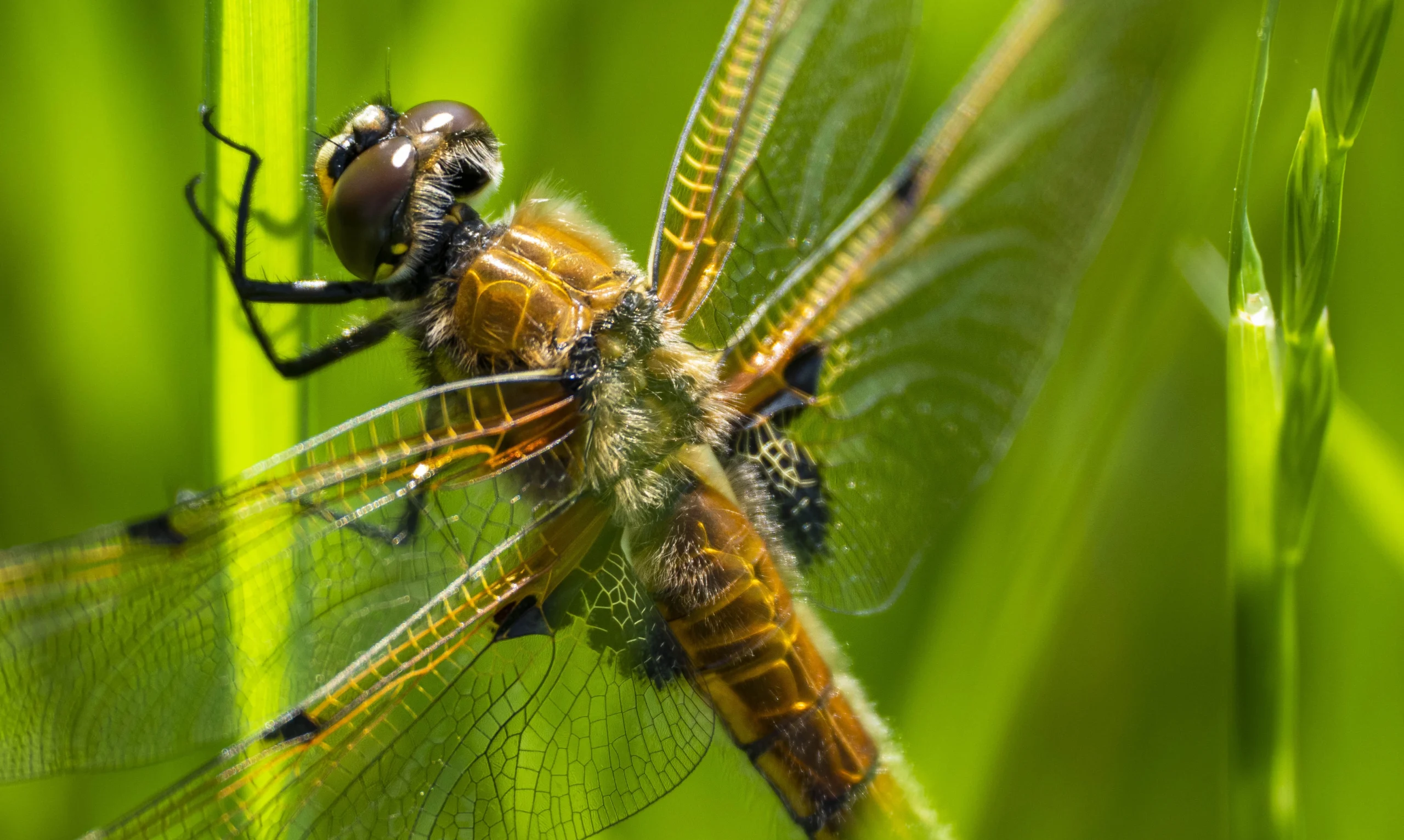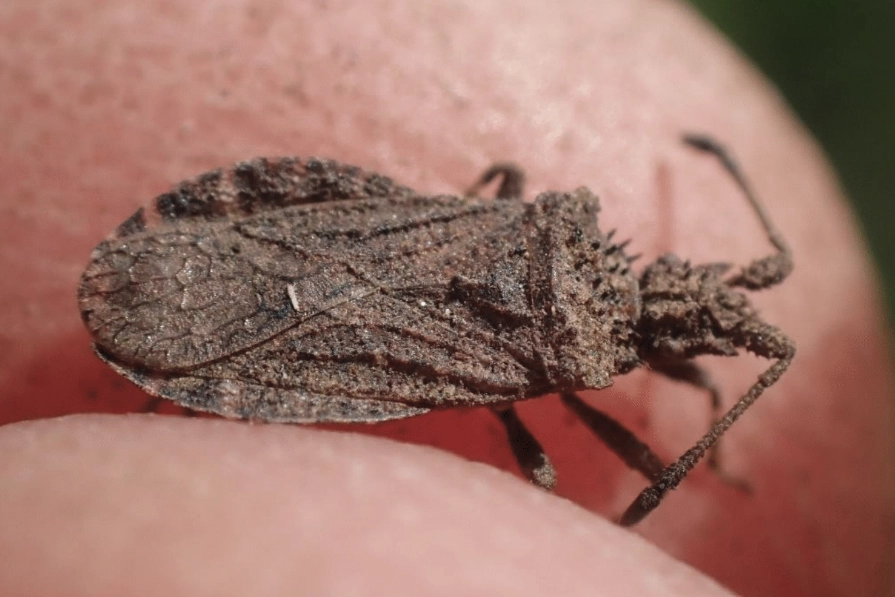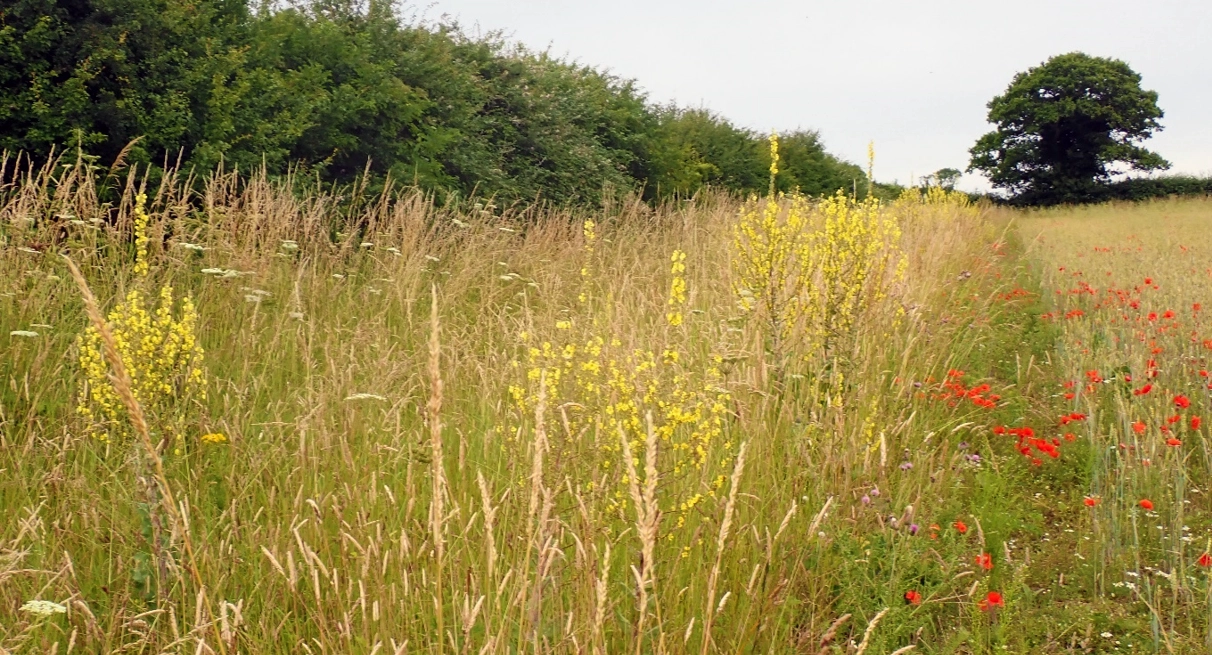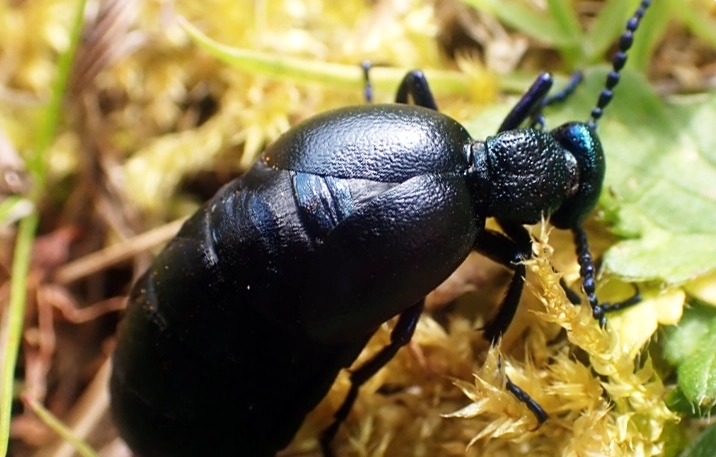


We’re excited to share more evidence that the rewilding project at Wild Ken hill is boosting biodiversity! Two years’ ago, surveys showed that the project had helped the spread of plant diversity. This time it’s insects! We now know that after five years of rewilding, the area hosts a greater diversity of insects than in 2019.
For the first time, we also performed a comprehensive survey of insects on the farming side of Wild Ken Hill. This showed that the farm has incredibly high levels of invertebrate biodiversity! Being the first time, we don’t know yet if our regenerative farming approach has made the farm better (we suspect it has!). What we do know, though, is that the farm is wonderful for insects, and this in itself is very rewarding.
We bring you more on both surveys below. Buckle up for some nature nerding!
Long-term followers of WKH may remember that the wonderful pan-species lister Graeme Lyons has performed several surveys here over the years. One such survey was a baseline invertebrate survey of the rewilding area. This survey established which species of insect were present in different parts of the rewilding area in 2019.
Well, Graeme was back at Wild Ken Hill in 2024 to perform the same survey, exactly 5 years later. Repeating the survey with the same methodology (and the same human!) is a great way to look at change over the time. We are interested in this so we can establish if the rewilding approach is working and make changes if necessary.
The headline is that Graeme recorded even more species of invertebrate in 2024 than he did in 2019! Specifically, Graeme recorded 875 species of invertebrate in 2024, compared to 814 in 2019. That’s an increase of 61 species or 7.5%. Of these 875 species, 63 had a Conservation Status. For lay folk, that means these are rare species. That’s up from 53 in 2019 – also pretty good going.

A critically endangered Breckland Leatherbug
While we can give ourselves a pat on the back for these results, a major driver for the diversity of insects (as well as birds, plants and mammals) at Wild Ken Hill is the natural variety in the landscape. Nothing we did, but the wide range of soils and vegetation. Coastal dunes, marshes, woodlands, grasslands and heath – Wild Ken Hill has it all. Indeed, the 2019 baseline figure of 814 species of invertebrate is the most that Graeme has surveyed at any comparable site.
So in summary, 1) the rewilding area here was very good for insects when we got going in 2019, and 2) it has improved over the first five years of rewilding.
Whilst we are pleased with the overall data, the report did highlight that some species were not doing so well, Graeme’s work suggests that the number of invertebrate species feeding on nectar were lower in 2024.
It is difficult to pinpoint the exact cause of this, national decline of bees and butterflies and erratic weather patterns (2024 was the wettest spring recorded) could play a role.
Another aspect we have more control over is grazing. The current grazing system doesn’t allow the site to ‘rest’. Cattle, ponies, and the wild deer graze the vegetation all year round. . This is great as it doesn’t allow a handful of species to dominate the grassland. However, come spring it does mean that the graziers – both domestic and wild – will preferentially graze flowering plants. This has a direct effect on the amount of nectar available for early spring invertebrates.
This survey highlights the importance of monitoring. Without this data we would be guessing, and knowledge is power. Now we are able to start tweaking the grazing system to reduce pressure on those early flowers. We are trialing a number of different methods to make the grazing more dynamic and put the rewilding area on the best trajectory. As ever, our focus in the rewilding area is on putting in place natural processes that in time will deliver great outcomes for nature.

A flower-rich field margin on the arable farm
Last year marked the official start of our two-year transition to organic farming. That means we’re totally free from chemicals. No pesticides, fertilizers, or growth regulators are used in our farm system. And in another year, we’ll be ready to market our produce as organic.
How we got here is the result of Estate Director Nick Padwick’s hard work restoring the health of our soils, and what’s great for soil is great for insects!
This made 2024 the perfect time to carry out a baseline survey of the arable farm, meaning a valid comparison to the rewilding area can be made.
Like in the rewilding area, Graeme surveyed eight separate plots on the farm.
The results were very exciting. Graeme recorded a larger number of species per plot than the rewilding area. An average count of 292 per surveyed plot vs 241 in the rewilding area meant that diversity at field level was – to use Graeme’s words – “incredibly high”. 71 of these species had conservation status, compared to 61 on the rewilding area.
Excitingly, two areas broke Graeme’s record for the most species recorded in any one compartment across all the projects he has surveyed!

Black Oil Beetle
When you zoom out to the wider landscape, the rewilding area is more diverse for insects than the farm. This is to be expected as on the farm each plot is similar, in contrast to the complex mosaic of habitats that make up the rewilding area.
Overall, we’re delighted. This is hard evidence that a relentless focus on soil health can be truly ‘regenerative’, supporting an abundance of other species while producing nutritious food for humans!
If you’re interested in supporting our work and want to experience what real change looks like on the ground, this is a superb time of year for keen invertebrate spotters to join us on site for a guided tour. Our expert guides don’t just help you identify wildlife, they tell the full story of Wild Ken Hill and how our approach plays a part in solving some of today’s most pressing challenges – from food security and human health, to climate and biodiversity.
Join us this summer!